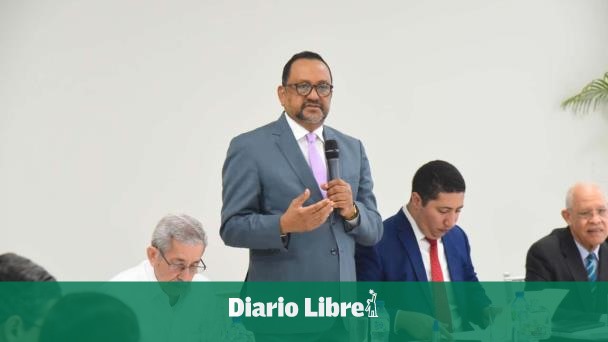This Wednesday at noon the Confederation of Organizations of Public Officials (COFE) voted in favor of the government’s proposal so that around 80% of public workers reach 6% salary recovery in 2025but a few hours later backtrackedless than 24 hours after the presentation of the Rendering of Accounts in Parliament.
The signing of that agreement would have ensured union peace, at least on salary issues, for a couple of years. However, other issues that may go into Accountability held up the agreement.
Martín Pereira, president of COFE, said on Twitter that when they went to sign the agreement they found “a surprise in working conditions”: the articles presented by the National Civil Service Office (ONSC), referring to the administrative career and the reform of the State.
“We were going to sign, but we found out, half bouncethat several articles related to public officials who have not been negotiated with COFE. We, without being sure of what those articles say, we cannot sign a blank check”said the general secretary of the union, José Lorenzo López, at a press conference held on Wednesday night.
The reform that the government intends to carry out bases in a decree of the Executive Branch of June 14 that gave the ministries one year to restructure their officials. COFFEE found out about the plan when it was publishedand filed an administrative appeal in Torre Ejecutiva on June 23, López told The Observer.
Regarding the reform of the administrative career, however, López assured that the union don’t know”not a single article that will go”, and who understand will be more than 30. However, despite the fact that the government maintains the project in its orbit, it won’t drive big changes in the current Surrender.
The negotiations with the Executive, which seemed to have materialized in a principle of agreement last Tuesday, now they entered an intermediate room until 12 noon this Thursdaywhen COFE will go to the Ministry of Labor (MTSS).
There they will meet with authorities from that ministry, from the Ministry of Economy (MEF), the Planning and Budget Office (OPP) and the ONSC. Looking for “let it be rescinded” the reform planned by the government, or at least there is “some mechanism” so that public workers can negotiate its scopemarked the general secretary of COFE.
Reform
The first of the two projects that public workers are not satisfied with is the reform of the State, a plan for which the Executive Power published a decree on June 14 in which gave all ministries 360 days to present a restructuring plan for their offices.
The plan may involve “transformation” and “merger” of offices with other government agenciesbut “it will not increase the cost of labor ties with the State”indicates the decree, which aims to update the agencies of the central administration to “enable a more effective State in its regulatory actions and provider of essential services to society, increasing their quality without increasing their costs.”
One of the points that generates discrepancies is the one that marks that each organism must “propose a list of surplus positions and functions as well as those labor links that, according to the restructuring proposal, are expected to be discontinued”. The posts affected, considered “surplus”they will enter a payroll from which They may be transferred to other State dependencies.
On June 23, COFE filed an administrative appeal against the decree in Torre Ejecutiva, which they learned about when it was published and which they hope to be able to negotiate. “We do not share the vision of the Executive Branch or how that came about”Lopez noted.
“It is in line with the adjustment policy, where each one of the ministries is indicated that they must declare excess civil servants,” the trade unionist said in an interview with La Diaria that Thursday, adding that the administration needs “a policy for hiring officials because there are services that are no longer being able to be provided”.
The other changes to which COFE refers are linked to those that the ONSC presented for the public administrative career. According to López, this reform has around 30 articles in the Surrender that unawareand what they will ask the authorities at this Thursday’s meeting.
The project, which was planned by the authorities of the current government since 2020, raises a career system based on “occupations”and they focus on “results, expected achievements and aligned to different processes that the Administration has to carry out”said Fernando Carrasco, director of the ONSC Human Management Strategies Division, in an interview published by the office itself in December 2021.
The main change in this proposal is based on the elimination of the three ranks that mark the official’s level of study, moving from 16 job grades to fiveand the creation of 126 occupations to which officials may apply based on their knowledge, regardless of their background, which allows greater “mobility”Carrasco indicated at the time.
“We have important deficits in the organization of our career system. This is reflected in strong wage disparities between the people who work in the Central Administration and who carry out similar tasks; we have a lot of problems for people to move up and have a career”said for his part Alejandro Milanesi, attached to the direction of the organization, in the same interview.
This discussion also takes place while there is a reform related to the medical certifications of public officials that was approved in Parliament but is not applied due to lack of agreement.







